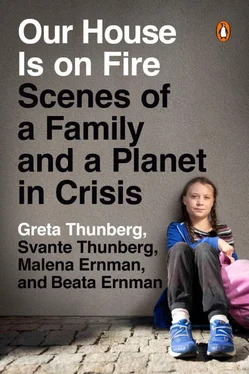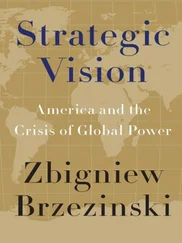Greta Thunberg - Our House Is on Fire - Scenes of a Family and a Planet in Crisis
Здесь есть возможность читать онлайн «Greta Thunberg - Our House Is on Fire - Scenes of a Family and a Planet in Crisis» весь текст электронной книги совершенно бесплатно (целиком полную версию без сокращений). В некоторых случаях можно слушать аудио, скачать через торрент в формате fb2 и присутствует краткое содержание. Город: New York, Год выпуска: 2020, ISBN: 2020, Издательство: Penguin Books, Жанр: Биографии и Мемуары, Публицистика, на английском языке. Описание произведения, (предисловие) а так же отзывы посетителей доступны на портале библиотеки ЛибКат.
- Название:Our House Is on Fire: Scenes of a Family and a Planet in Crisis
- Автор:
- Издательство:Penguin Books
- Жанр:
- Год:2020
- Город:New York
- ISBN:978-0-14313-357-5
- Рейтинг книги:4 / 5. Голосов: 1
-
Избранное:Добавить в избранное
- Отзывы:
-
Ваша оценка:
- 80
- 1
- 2
- 3
- 4
- 5
Our House Is on Fire: Scenes of a Family and a Planet in Crisis: краткое содержание, описание и аннотация
Предлагаем к чтению аннотацию, описание, краткое содержание или предисловие (зависит от того, что написал сам автор книги «Our House Is on Fire: Scenes of a Family and a Planet in Crisis»). Если вы не нашли необходимую информацию о книге — напишите в комментариях, мы постараемся отыскать её.
Our House Is on Fire: Scenes of a Family and a Planet in Crisis — читать онлайн бесплатно полную книгу (весь текст) целиком
Ниже представлен текст книги, разбитый по страницам. Система сохранения места последней прочитанной страницы, позволяет с удобством читать онлайн бесплатно книгу «Our House Is on Fire: Scenes of a Family and a Planet in Crisis», без необходимости каждый раз заново искать на чём Вы остановились. Поставьте закладку, и сможете в любой момент перейти на страницу, на которой закончили чтение.
Интервал:
Закладка:
Autism and ADHD and all the other neuropsychiatric functional impairments are not handicaps per se. In many cases, they can be a superpower, that out-of-the-box thinking you so often hear performers, artists and celebrities talk about. Performers like me, for instance.
But the complications that can arise because of a diagnosis can definitely be compared to a handicap; a handicap that is created by ignorance, incorrect treatment, discrimination or an inability to provide much-needed societal adaptation.
That handicap can be borne and carried by more than one person. As a family you can offer relief, plough the way, share the complications, and yes, that helps. With the right assistance and adaptation the problems often diminish as children get older. But if you don’t get help, it is our experience that the problem often spreads quickly and whole families risk becoming more and more codependent or co-handicapped.
Tens of thousands of families in Sweden are experiencing this now – families that to a great extent are living parallel to Swedish society in a state of alienation that no one else seems to have the slightest clue about.
Of course, there are no economic interests represented in this community. There are no lobbying groups. Here, among the invisible children and the invisible families, hardly anyone can find the strength to talk at all. It requires too much energy – I almost can’t bear to write about it myself. Because between the lines there is a story that can’t be told. A story that absolutely no one wants to document, because those who have been there never want to turn back and be reminded about how it actually was. It’s too tough. It’s too ugly. It’s too messy.
This story is way too humiliating for all involved – and that’s why I have to tell it.
It’s my duty because I have the opportunity to make myself heard. I have to speak out about the daily phone calls to teachers and parents to ease and facilitate everyday life. To the handicrafts teacher, the maths substitute, a classmate’s father. Or about the thousands of late-evening emails to various school administrators sent to calm the children and help them sleep. Constantly forced to be the one who reminds others that what is best for the majority might be the worst for an individual.
P.E. classes that have to be changed, pop quizzes that aren’t going to work. Outings that have to be cancelled. Medicine that runs out and pharmacies that haven’t received the prescription. Every teaching assistant who never shows up, and sleepless nights, and phone queues at BUP, and notes from the school that never arrive.
Neighbours who complain, and broken walls, and disappointed friends who stop calling. All the phones, computers and Instagram accounts you want to throw to hell.
All the antidepressants and sedatives. Days when I’m not allowed to sleep at home because I make too many sounds. Concerts and music that I have to learn in the cellar storage room. Friends making comments on Snapchat.
All the days when you don’t have the energy, or desire for anything. All the days that are a single, hopeless darkness. All the days – every day for five years – that our family could not eat together, or were barely able to be in the same room.
The stickers from the neo-Nazi Nordic Resistance Movement in our building’s foyer, aimed at my family because I’ve chosen to take a public stand against racism. The pictures of our building posted on the internet to threaten us, and the evenings we went into the BUP emergency clinic and were given a cheese sandwich in the waiting room only to go home again because it was all just an attempt by us to set limits.
All the stay-at-homes: children who no longer manage to go to school.
Someone has to talk openly about a school system where one in four pupils ends up excluded. Pupils who end up without a diploma because special-education private schools that make millions in profit ‘failed’ to hire any teachers. The world’s most profitable failure.
Children with autism who are forced to go to a school where 82 per cent of those like them are bullied. All the crisis meetings with schools and all the parents and teachers who get burned out. Everyone who is worse off than we are.
The connections between autism and depression, and children who take their own lives.
The darkest statistic: girls with anorexia.
And all the bottomless sorrow, sorrow, sorrow over all these childhoods, lost because we live in a society that excludes more and more people with every day that passes.
A society to which we devote all our time and energy adapting ourselves, and no, it doesn’t require a neuropsychiatric functional difference to be able to see what is sick around us.
But the fact remains, sometimes the healthiest thing a person can do is to fall apart. The problem is that it doesn’t help in the long run.
So we don’t give up.
Whatever happens, we will never give up.
We try.
We heal each other.
Perhaps we will never be fine, but we can always get a little bit better, and there is strength in that. There is hope in that.
SCENE 24.
Street Dance
It is Tuesday and we’re just starting to recover after yet another abysmal weekend.
Last Friday a new teacher came up to Beata and asked why she looked so tired, and when she usually went to sleep at night.
‘Midnight,’ Beata answered. The teacher hit the roof and gave her a long lecture – with the best intentions, of course – about the proper bedtime and how many hours you need to sleep to cope with school, and everything she said stressed Beata out so much that she couldn’t sleep all weekend. It took three days for the family to fall apart again like a house of cards.
But today it’s Tuesday and it’s time for dance class.
It’s important to be there on time, as the stress of arriving late can be so severe that it’s impossible to get going at all.
So we give ourselves plenty of time.
Beata has to avoid all the cobblestones, you see.
She has to lead with her left foot and if she gets it wrong she has to start over. And I have to walk exactly the same way, which is hard because I have longer legs, and we’re probably quite the funny sight, walking the street back and forth. Back and forth.
It’s no more than a kilometre by foot but it takes almost an hour and it’s only with me that she has these compulsions. And I understand. Because I was exactly the same with my mother – all of my tics got much worse in her company.
When we arrive we discover that there’s a substitute teacher today, which is not good, because it will be different, and Beata doesn’t like different. I sit down on the floor outside and wait.
Every Tuesday I sit there for two hours. I can’t move from the spot, not even to go to the toilet, because Beata will worry. She has to be able to see me through the crack in the door at all times.
I feel the bass vibrate in the walls and the floor. Immediately there’s a stab of worry in my gut. The volume is not usually this high. I answer emails on my phone, try to do something useful. After a while I sneak in and peek through an opening in the drapery inside the door. The music is thundering in there and eight girls are doing street dance while the substitute stands at the front shouting out dance steps. The ninth girl isn’t dancing at all – she’s standing in the middle of the room holding her ears and sobbing. Her whole body is shaking.
I rush in and ask them for the umpteenth time to lower the damned volume and don’t you see that she’s crying?! But the substitute doesn’t understand why he should care, so I take Beata with me and go home. And the weekly street dance becomes yet another in a long series of failed group activities.
Читать дальшеИнтервал:
Закладка:
Похожие книги на «Our House Is on Fire: Scenes of a Family and a Planet in Crisis»
Представляем Вашему вниманию похожие книги на «Our House Is on Fire: Scenes of a Family and a Planet in Crisis» списком для выбора. Мы отобрали схожую по названию и смыслу литературу в надежде предоставить читателям больше вариантов отыскать новые, интересные, ещё непрочитанные произведения.
Обсуждение, отзывы о книге «Our House Is on Fire: Scenes of a Family and a Planet in Crisis» и просто собственные мнения читателей. Оставьте ваши комментарии, напишите, что Вы думаете о произведении, его смысле или главных героях. Укажите что конкретно понравилось, а что нет, и почему Вы так считаете.






![Корнелл Вулрич - Murder at Mother’s Knee [= Something That Happened in Our House]](/books/398097/kornell-vulrich-murder-at-mother-s-knee-somethin-thumb.webp)





